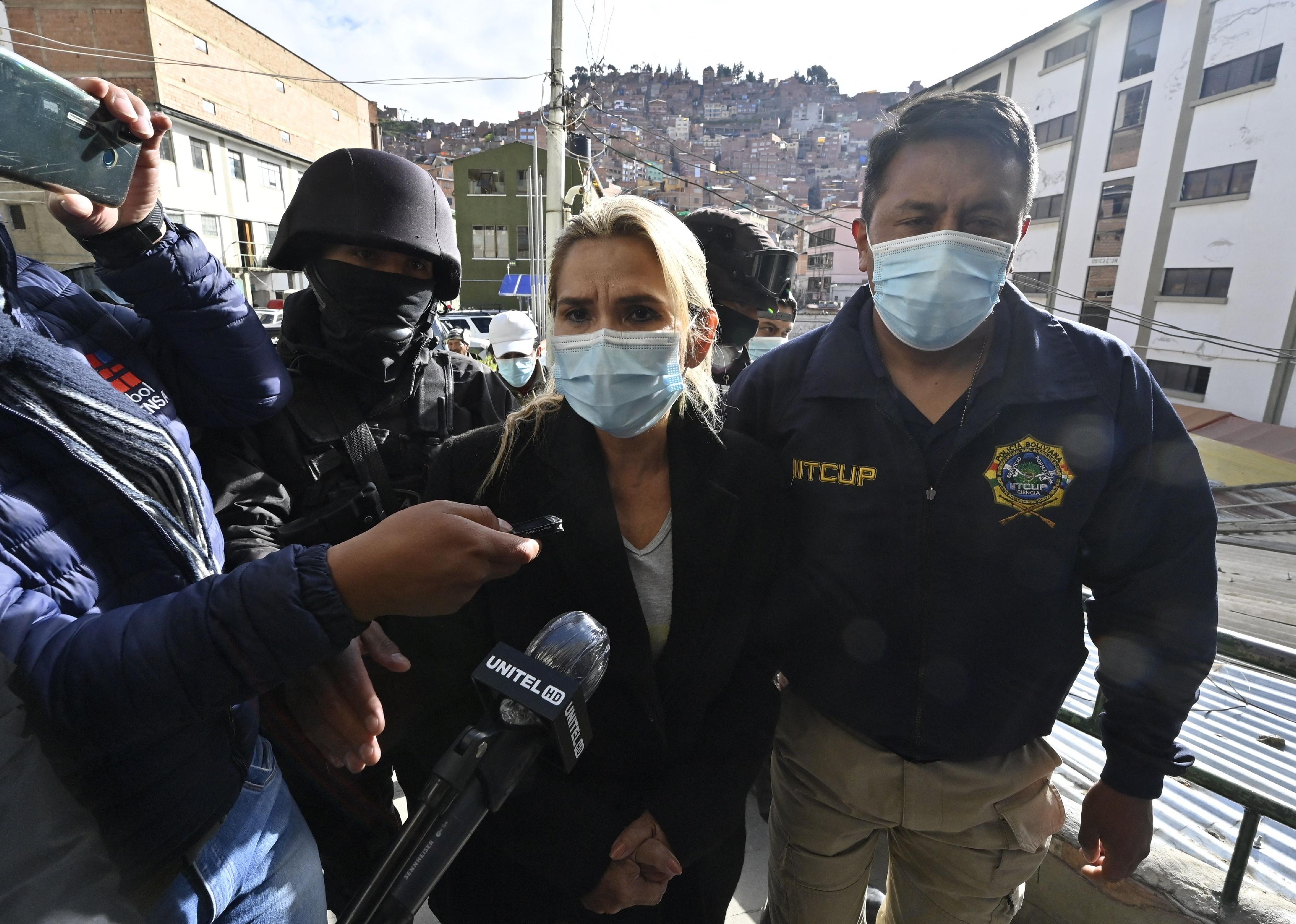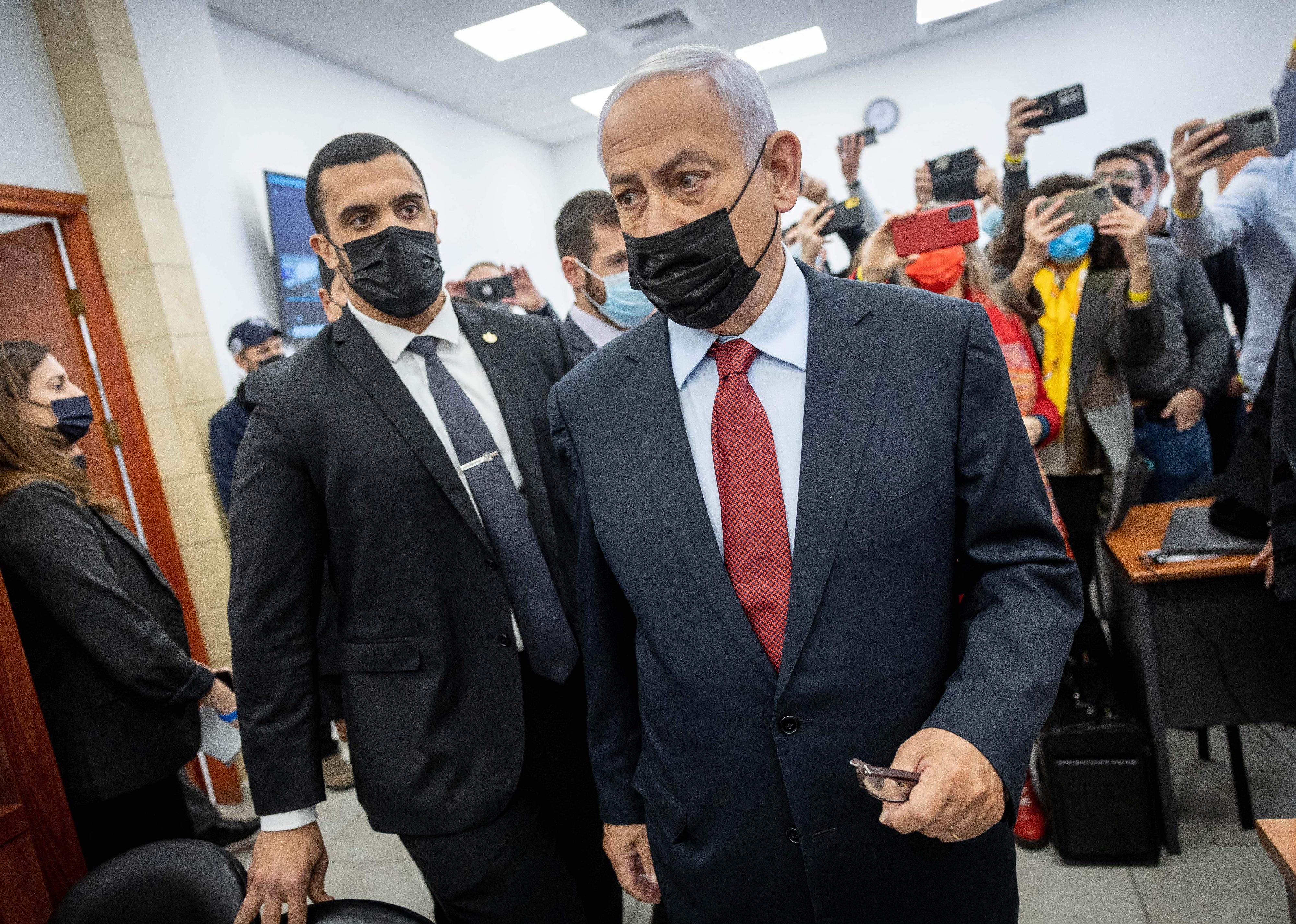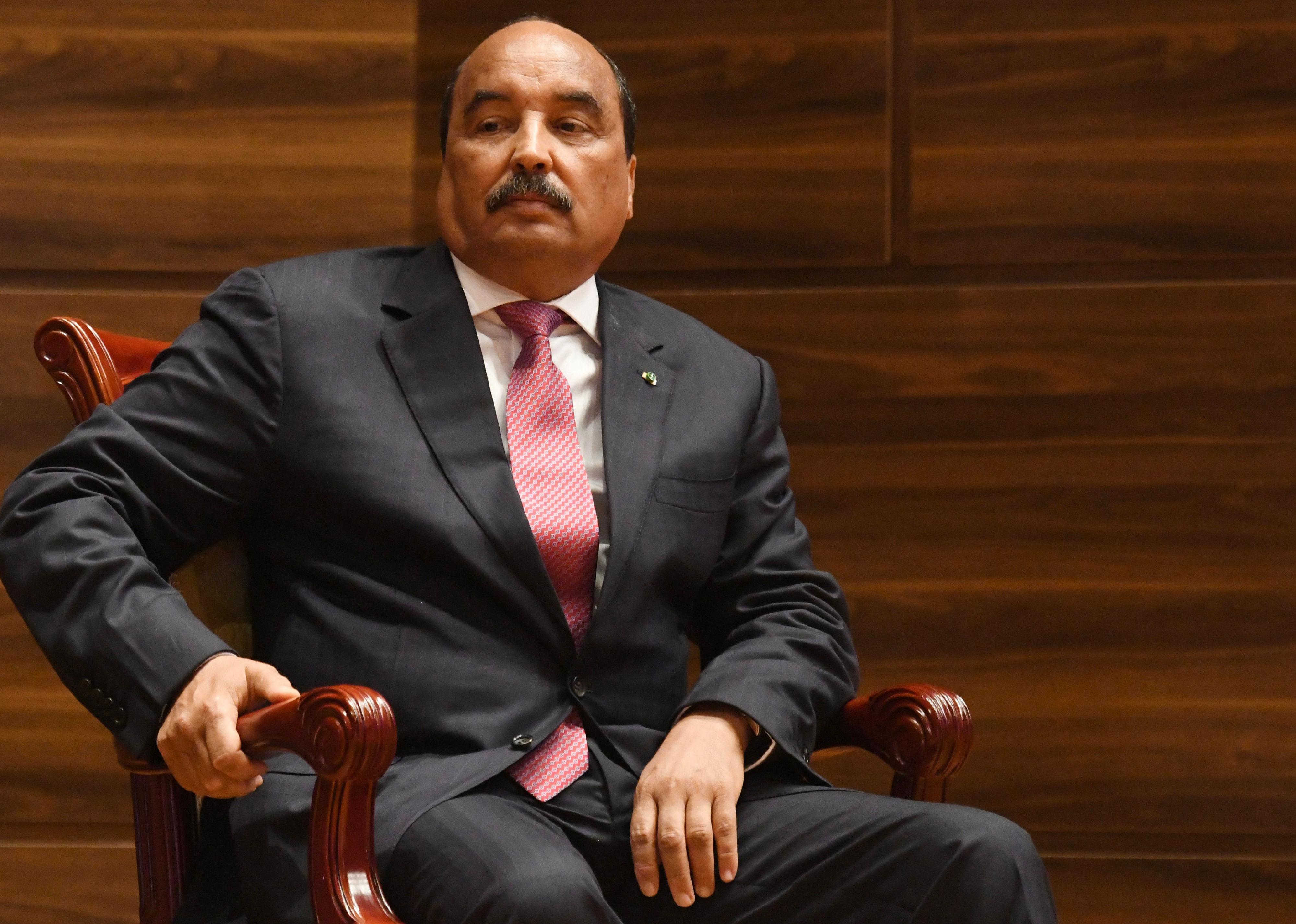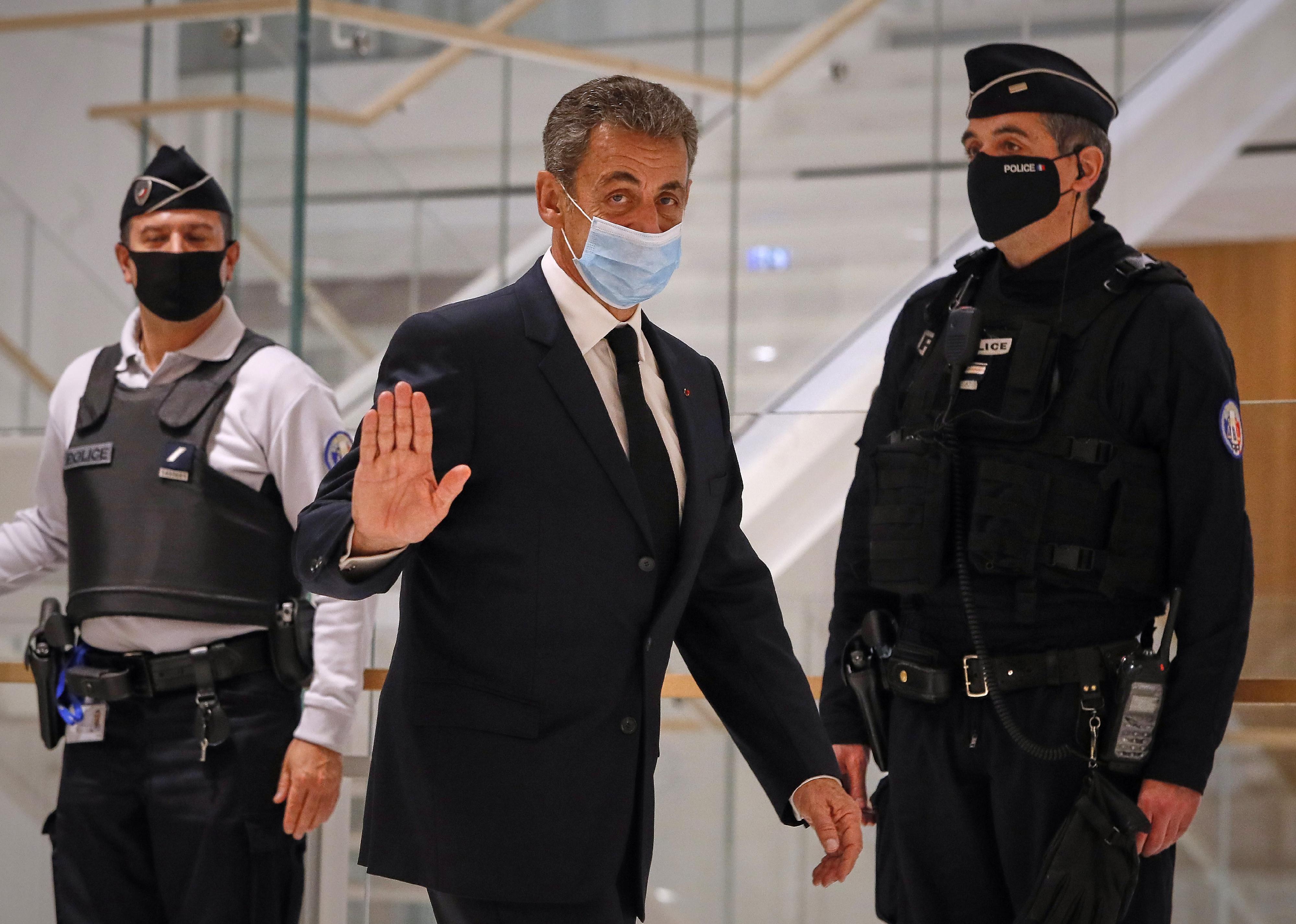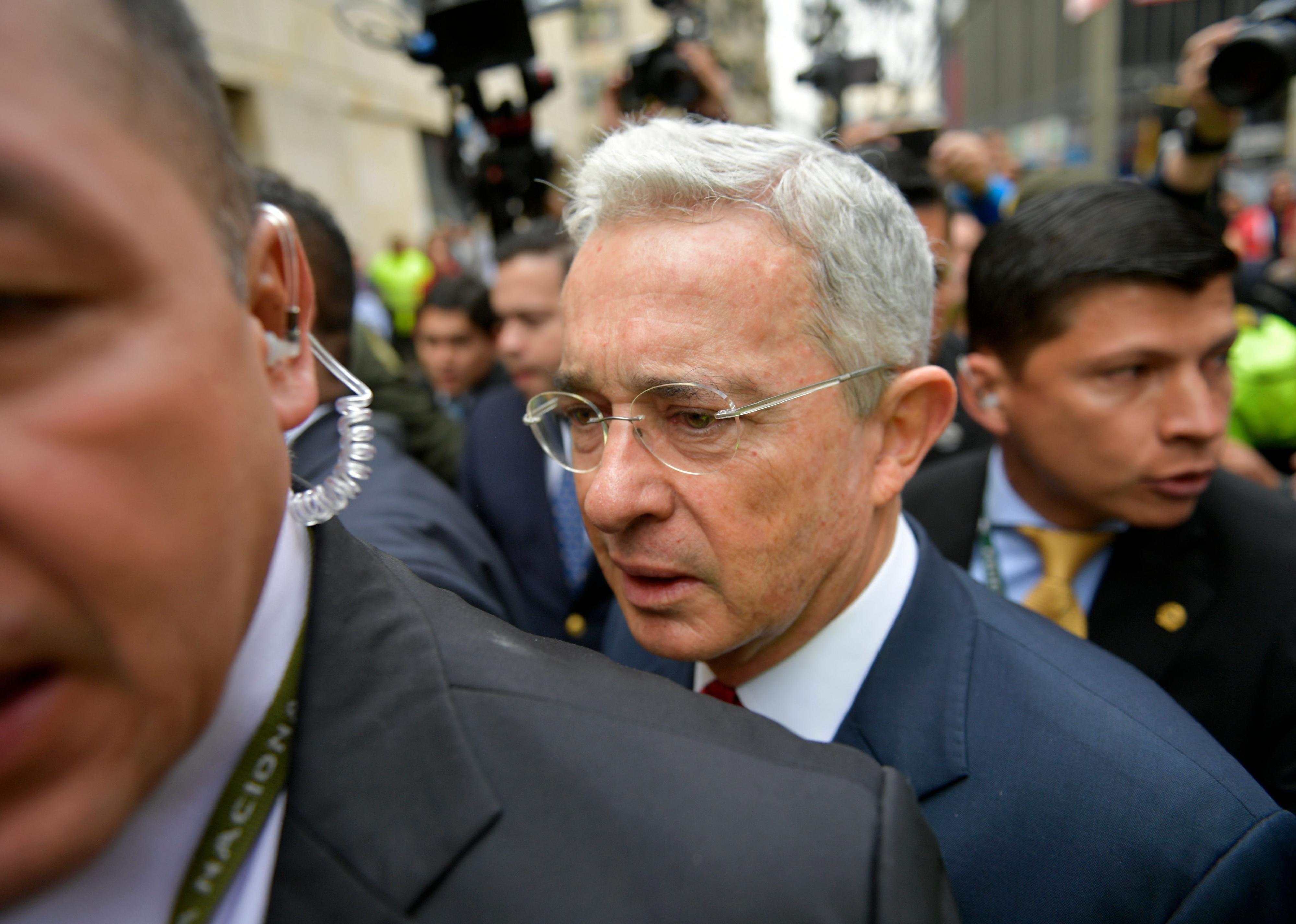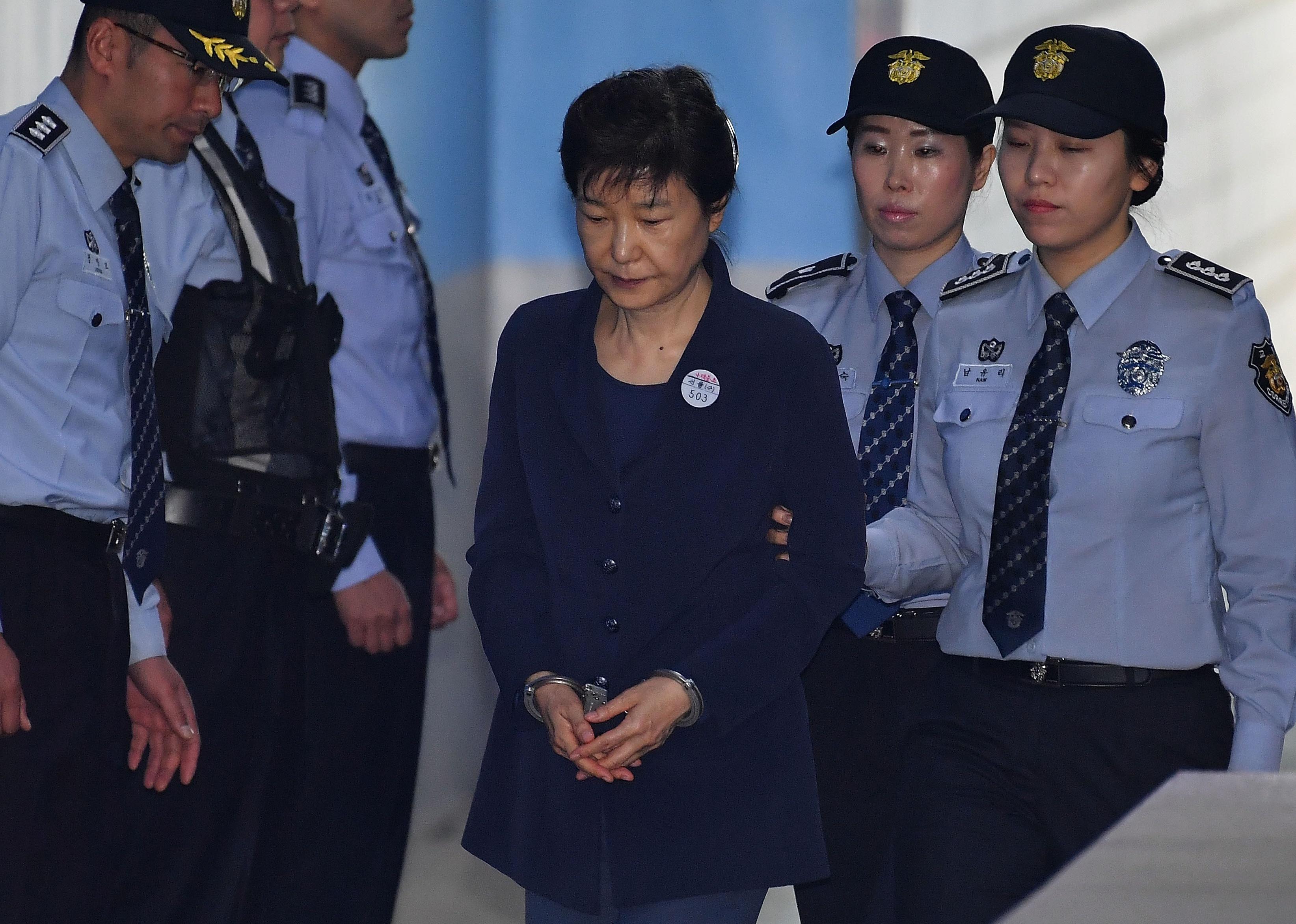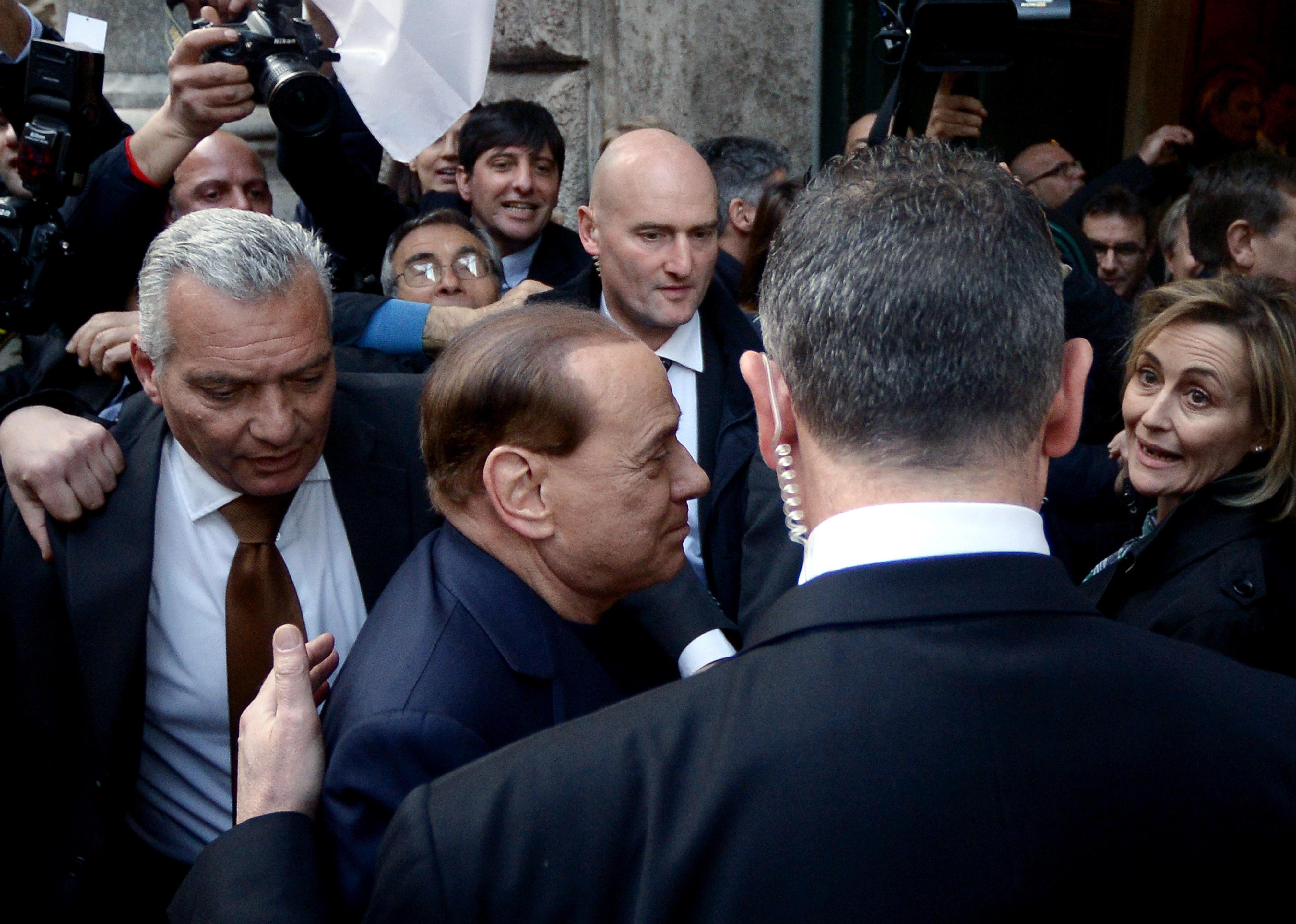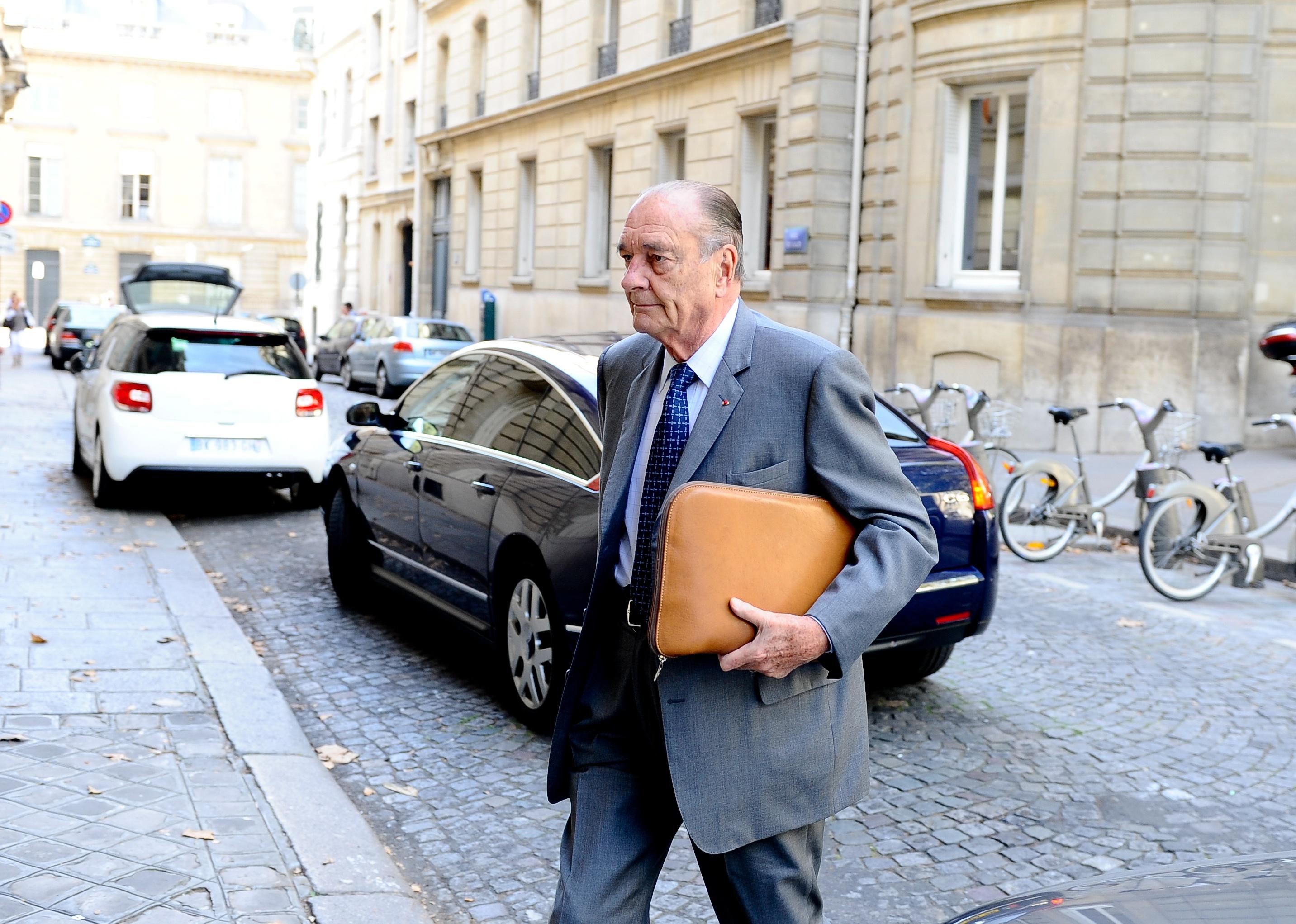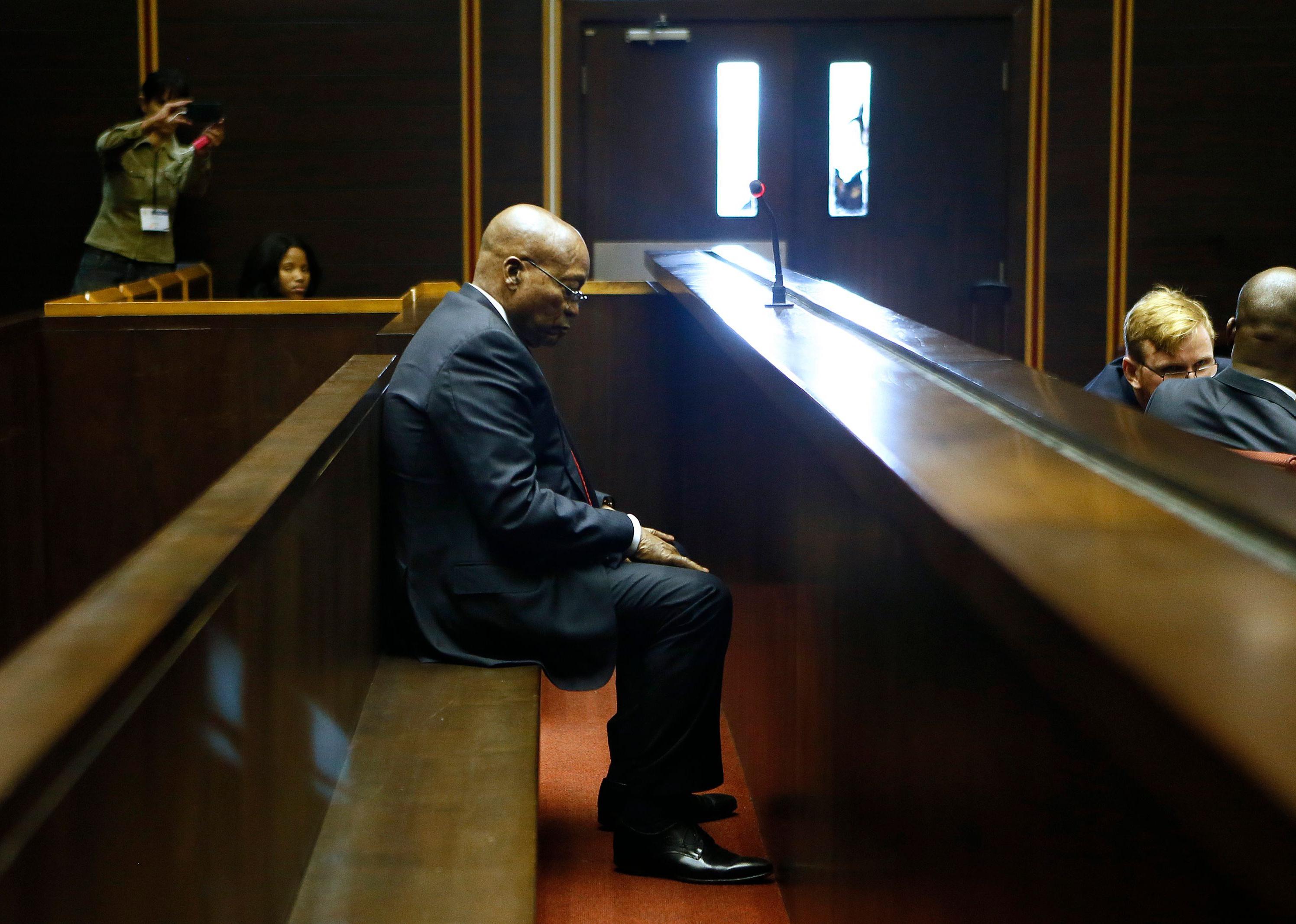Former world leaders who were prosecuted after leaving office
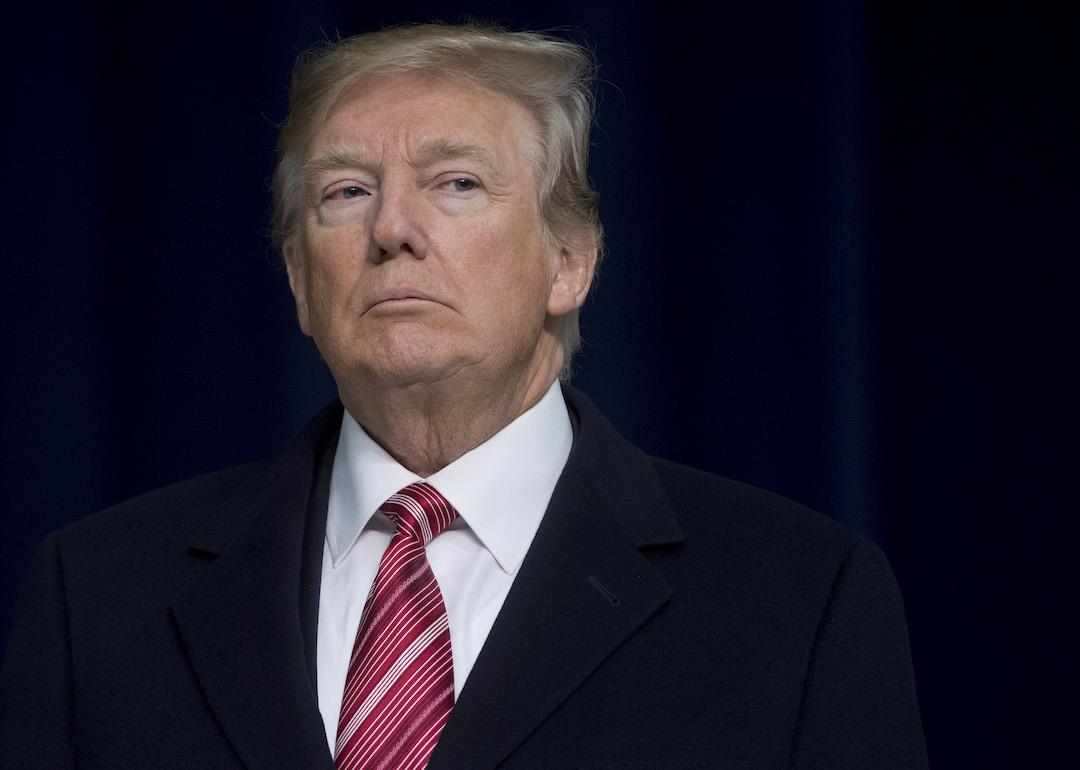
Saul Loeb/AFP via Getty Images
Former world leaders who were prosecuted after leaving office
Donald Trump speaks during a retreat with Republican lawmakers at Camp David in Thurmont, Maryland, January 6, 2018.
Donald Trump made history last week as the first former president in U.S. history to be indicted for criminal conduct.
Trump is being charged for his alleged role in a hush money payment made to adult film star Stormy Daniels prior to the 2016 presidential election that was intended to silence her from going public about an affair she claims to have had with the former president a decade ago.
The indictment is such a rarity not because there was a virtue-driven absence of any wrongdoing spanning 45 presidencies, but because a certain degree of impunity has kept the executive branch focused on its constitutional responsibilities. Equally as important, that impunity prevents criminal indictment from being used as a political weapon.
The constitution doesn’t have specific language around the indictment of sitting or former presidents. Without a legal precedent established by the Supreme Court, it remains a matter of discretion according to the U.S. Department of Justice. An internal DOJ memo written in 1973 and subsequently reviewed and upheld by the Office of Legal Counsel stated that an indictment, and all that comes with it, would undermine the ability of the executive branch to perform its duties. Therefore, the department’s official position has been that sitting presidents are immune from prosecution.
However, the idea of post-term indictments is more widely accepted provided that the conduct in question occurred in a personal capacity. Even so, no former president had been formally indicted until now. Gerald Ford granted Richard Nixon a full unconditional pardon for his role in the Watergate scandal, preventing Congress from pursuing charges of obstruction of justice. While Bill Clinton was impeached by the House of Representatives for lying under oath and obstructing justice, he was ultimately acquitted by the Senate—and was never indicted after office.
In recent years, democracies around the world have been cracking down on the corruption of past presidents in an effort to hold them accountable. And while this may be the purest form of protecting democratic ideals and values, it has the potential to do more harm than good. In young democracies, such prosecution can lead to political division and instability. In the ultimate political quandary for new and old democracies alike, letting a corrupt leader walk free is sometimes for the greater good if it allows democracy to gain a foothold.
With former President Donald Trump now facing charges in one case, as well as investigations into his efforts to overturn the 2020 election, his role in the Jan. 6 Capitol riot, and the discovery of more than a dozen boxes of White House records at his Mar-a-Lago residence, Stacker referenced news coverage and legal documents to compile a list of former world leaders who were prosecuted after leaving office and the ramifications that had on their countries.
You may also like: 25 facts about Mexican history and culture.
![]()
AIZAR RALDES // Getty Images
Jeanine Áñez, Bolivia (2021)
Jeanine Anez escorted by police members of the Special Force against Crime
Jeanine Áñez became Bolivia’s interim president during the country’s political crisis in 2019. Leading up to that year’s general election, Bolivia’s Supreme Court eliminated term limits for public officials. As a result, incumbent presidential candidate Evo Morales ran for a fourth term as president and won.
When evidence of election fraud surfaced, suggesting Morales rigged the vote in his favor, a slew of top-ranking government officials resigned, including Morales himself. Áñez, who was president of the Senate at the time, assumed the presidency as the next in succession.
With protests raging throughout Bolivia in the wake of political turmoil, Áñez signed a decree giving impunity to armed forces tasked with regaining order as long as their actions were necessary or in self-defense. Dozens of mostly working-class and Indigenous civilians died in the clashes.
In 2021, Áñez was arrested and charged with leading a coup against Morales in 2019. In June 2022, she was found guilty and sentenced to 10 years in prison. Áñez is facing additional charges related to sedition and genocide.
YONATAN SINDEL // Getty Images
Benjamin Netanyahu, Israel (2019)
Benjamin Netanyahu stands at the courtroom in the Jerusalem District Court
Benjamin Netanyahu is once again the prime minister of Israel after winning his bid for reelection in November 2022, despite ongoing criminal proceedings. He previously served as Israel’s prime minister from 1996 to 1999 and again from 2009 to 2021 after a brief retirement from politics. In 2019, Israel’s attorney general recommended that Netanyahu be indicted on charges of fraud, bribery, and breach of trust outlined across three cases known as cases 1000, 2000, and 4000. He was officially indicted in 2019.
Case 1000 includes allegations of the Netanyahu family receiving gifts in exchange for political favors for wealthy allies. Case 2000 alleges that Netanyahu benefited from a proposed deal with Arnon Mozes, owner of Israel’s largest newspaper. The deal involved Netanyahu passing legislation to weaken Mozes’ competitors in exchange for positive coverage of the prime minister.
Case 4000, the most serious of them all, accuses Netanyahu of using his position as communications minister to promote the business interests of Shaul Elovitch, a controlling shareholder of Bezeq, Israel’s largest telecommunications company. In return, Netanyahu gained editorial control over Walla, a news site owned by Elovitch.
SEYLLOU // Getty Images
Mohamed Ould Abdel Aziz, Mauritania (2021)
Mohamed Ould Abdel Aziz looks on during the swearing-in ceremony of the newly-elected Mauritania’s President
Mohamed Ould Abdel Aziz was Mauritania’s president from 2009 to 2019. Aziz spent most of his life as a soldier, quickly climbing military ranks and eventually heading the Presidential Security Battalion—a position with power and proximity to political leadership that ultimately facilitated his foray into politics.
When Aziz was fired from this role in 2008 by then-President Sidi Mohamed Ould Cheikh Abdallahi, he led a coup—the second of his military career—which successfully deposed Abdallahi. Aziz took control of Mauritania’s interim government and remained in power until an official election in 2009 legitimized him as president.
In 2021, after a yearlong parliamentary investigation into Aziz’s time in office, he and many of his associates were charged with corruption, including money laundering and illicit enrichment, and jailed. Aziz was released from prison six months later due to poor health—including undergoing heart surgery in January 2022—but remains under supervision at his residence.
Kiran Ridley // Getty Images
Nicolas Sarkozy, France (2020)
Nicolas Sarkozy leaves court after the second day of his trial
In 2021, French president Nicolas Sarkozy was found guilty of corruption and influence peddling, making him the second president in France’s history to be convicted of a crime; Sarkozy’s predecessor Jacques Chirac was the first.
The charge stemmed from allegations that Sarkozy tried to obtain confidential information from a judge about an investigation into his campaign finances by using his influence to land the judge a prestigious job. Sarkozy was sentenced to three years in prison, with two years suspended. The former president appealed the ruling, placing the entire sentence on hold.
Six months later, in a case known as the Bygmalion Affair, Sarkozy was found guilty of violating campaign finance laws during his unsuccessful 2012 presidential bid, spending nearly $50 million—about twice the legal limit. He was sentenced to a year of house arrest.
Sarkozy’s legal woes date back even further. Shortly after leaving office, Sarkozy was accused of taking millions in cash from late Libyan dictator Moammar Gadhafi to finance his 2007 presidential campaign illegally. Sarkozy has denied wrongdoing in all cases and remains an influential political figure in France.
RAUL ARBOLEDA // Getty Images
Álvaro Uribe, Colombia (2020)
Alvaro Uribe arrives to the Palace of Justice for a hearing before the Supreme Court of Justice
Álvaro Uribe served as Colombia’s president from 2002 to 2010. Uribe had more than 20 years of political experience before taking office, serving as mayor of Medellín, a senator, and governor of Antioquia.
In 2020, the Supreme Court of Justice of Colombia placed Uribe under house arrest while it investigated allegations of bribery, witness tampering, and crimes against humanity. Uribe was accused of sponsoring paramilitary forces during his time as governor. Right-wing paramilitary groups—who controlled much of the country’s illegal drug trade—were organized to combat leftist guerrilla groups throughout Colombia. Much of his presidency was defined by his efforts to dismantle this group and subsequent civilian deaths that occurred in the process.
Uribe has since been released from house arrest while investigations continue.
You may also like: Abortion laws around the world
Song Kyung-Seok-Pool // Getty Images
Park Geun-hye, South Korea (2017)
Park Geun-hye arrives at the Seoul Central District Court
Park Geun-hye was South Korea’s first female president, serving from 2013 to 2017. She was lauded as one of the most powerful people in the world, making or topping several Forbes lists of influential people. However, Park’s legacy also includes being the country’s first president to be impeached.
South Korea’s Constitutional Court unanimously found Park guilty of widespread corruption and influence peddling involving other high-profile South Korean business and legal magnates, including Samsung executives. Park’s misdeeds were orchestrated by longtime friend and unofficial adviser Choi Soon-sil.
Park’s removal from office was precipitated by mass protests and followed by a fair democratic election that named Moon Jae-in, a former human rights lawyer, as Park’s successor.
FILIPPO MONTEFORTE // Getty Images
Silvio Berlusconi, Italy (2014)
Silvio Berlusconi surrounded by bodyguards arrives at his home in downtown Rome
Silvio Berlusconi, a media tycoon and billionaire before becoming a politician, served as Italy’s prime minister three times: first in 1994, then from 2001 to 2006, and finally from 2008 to 2011.
Berlusconi was surrounded by sex scandals and allegations of misconduct for most of his political career. In 2013, Berlusconi was convicted of paying for sex with an underage sex worker during his last term. The former prime minister was sentenced to seven years in prison and banned from ever serving in public office again.
Berlusconi appealed the conviction, and in 2014, a court overturned the sentence on the grounds that evidence did not adequately prove the former prime minister knew the sex worker was only 17 years old. That same year, Berlusconi was also found guilty of tax fraud, for which he served one year of community service.
In August 2022, Berlusconi announced that he would be running as the Forza Italia candidate for Senate.
Christophe Morin/IP3 // Getty Images
Jacques Chirac, France (2011)
Jacques Chirac arrives at his office
Jacques Chirac served as the president of France from 1995 to 2007. Prior to his presidency, Chirac served two terms as prime minister and nearly two decades as the mayor of Paris.
Chirac was at the center of corruption allegations dating back to his time as mayor, including the misappropriation of public funds, influence peddling, and paying political allies tax-funded municipal salaries for jobs that did not exist. It is estimated Chirac’s misconduct during his time as mayor cost Paris taxpayers roughly $1.8 million.
In 1999, France’s Constitutional Council issued a ruling that gave sitting presidents immunity from prosecution, with the exception of treason. As a result, Chirac was not convicted on corruption charges until 2011. His guilty verdict made him the first French president to be convicted of a crime. The former president was given a two-year suspended sentence due to his age and poor health. Despite denying wrongdoing, Chirac did not appeal the verdict.
PHILL MAGAKOE // Getty Images
Jacob Zuma, South Africa (2006)
Jacob Zuma sits in the dock of the High Court of Pietermaritzburg
Jacob Zuma served as South Africa’s third deputy president from 1999 to 2005. He was removed from his post by President Thabo Mbeki in 2005 following corruption charges.
Zuma was accused of accepting bribes from a French arms dealer during a 1999 South African arms deal estimated to have cost $5 billion. That same year, Zuma was charged with raping the daughter of a family friend. In 2006 he was acquitted of rape, and in 2009 the corruption charges against him were dropped due to political interference.
Zuma returned to power, largely on the strength of his popularity among poor South Africans, and managed to avoid prosecution during his presidency from 2009 to 2018. In 2021, Zuma was arrested and sentenced to 15 months in prison for refusing to participate in a corruption inquiry during his presidency. He was briefly released on medical parole, but a judge ordered him to return to prison in December 2021.
